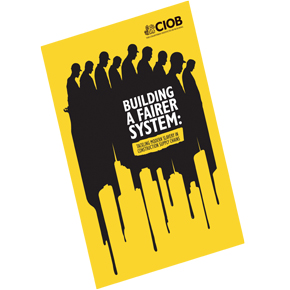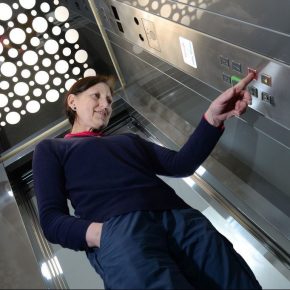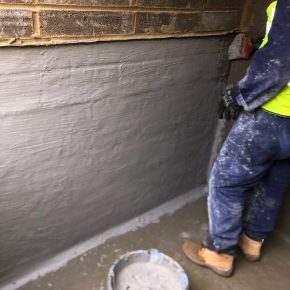
A call to tackle modern slavery within the construction industry
The Chartered Institute of Building (CIOB) is calling for greater industry collaboration to eradicate unfair labour practices. Clients and tier one organisations need to take greater responsibility for their supply chains. Priority should be given to tackling illegal recruitment fees, according to the new CIOB report – Building a fairer system: Tackling modern slavery in construction supply chains. ABC+D finds out more…
The report, produced in consultation with a number of businesses and NGOs, including Amnesty International, Verité, Engineers Against Poverty and the Institute for Human Rights and Business, examines the root causes of slavery and sets out priority actions for moving the industry towards greater transparency.
Slavery remains a problem hidden within many sectors. The International Labour Organization estimates that there are 21 million people in forced labour around the world, generating profits in the private economy of $150bn. Interpol estimates that only 5-10% of cases are ever reported.
With its fragmented supply chains, opaque procurement processes and high demand for migrant labour, the construction sector faces a unique set of challenges in tackling human rights abuse. It is a priority area for the UK’s first Anti-Slavery Commissioner, Kevin Hyland OBE, has written a foreword for the report.
Building a fairer system examines how workers from developing countries become tricked or coerced into paying illegal and extortionate recruitment fees and, once in debt, become vulnerable to exploitation in their place of work. Abuse ranges from forced or bonded labour, late payment, unsanitary living conditions, unfair deductions from wages, withheld passports and loss of freedom of movement, lack of representation, violence, intimidation and physical abuse.
The report also examines how faults in the procurement process allow exploitative practices to remain hidden in building materials supply chains. It includes a series of case studies and recommendations from organisations that are working to shift cultural practices and norms:
- How ethical recruitment firm FSI Worldwide‘s integrated cross-border operations are eradicating illegal recruitment fees.
- The steps that CH2M has taken to implement a new global worker welfare policy.
- Hewlett Packard’s move to direct labour.
- Qatar Rail’s worker welfare strategy.
- Marshalls’ ten-year initiative to protect vulnerable children.
- Bechtel’s bottom-up approach to tackle exploitation in metal mining.
Building a Fairer System is part of CIOB’s ongoing campaign responding to changing legislation and international protocols. The UK Modern Slavery Act, which came into force in 2015, requires UK organisations with a turnover of more than £36m to report on how they are dealing with human rights issues in their supply chains. Other forces reshaping the industry include the California Transparency in Supply Chains Act of 2010, the EU Non Financial Reporting Directive and the UN’s Sustainable Development Goals for 2015.
In parallel to the report, CIOB is collaborating with specialist providers on a series of training packages and is preparing an industry toolkit, to be launched later in the year. The CIOB is making the case that ethical innovation will be a powerful differentiator for businesses and essential for future-proofing brands as well as improving the global reputation of the sector.
Anti-Slavery commissioner, Kevin Hyland, OBE said: “With the culture of transparency becoming the norm in the era of globalised communication, having and showcasing sustainable and ethical practices is the only way forward and, indeed, an excellent market opportunity. Companies who opt for a model of secrecy will find they are no longer viable, as NGOs, journalists and consumers are increasingly able to hold them to account. Instead, those who lead the way with transparent, ethical and slavery-free supply chains will become the companies of choice and the new market leaders.”
CIOB chief executive Chris Blythe said: “CIOB’s core values are founded on the principles of ethical business behaviour. We are calling on our thousands of members and partners to ask more searching questions of their colleagues, suppliers and clients. Strong leadership is required, as is the willingness to take more responsibility, both individually and at corporate level.
“Ethical procurement processes should be embedded into the heart of operations. Organisations need to become proactive, holding subcontractors and suppliers to account through more stringent clauses and penalties and the eradication of illegal recruitment fees must be our priority.
“Our journey towards the eradication of slavery will take decades and demands collective action, as is reflected by the multiple contributors to this report. Professional and private organisations need to come together to solve these complex problems and to make a lasting difference.”
The report makes a series of recommendations for the construction supply chain:
Recommendations for tier one organisations:
1. Map out supply chains and identify areas of highest risk, geographically and by activity. Tackle these areas first.
2. Lead policy from the top of an organisation, at CEO and COO level.
3. Provide tailored training and education to staff at all levels of the business.
4. Work directly with labour supply agents and/or increase the proportion of directly employed labour on a project.
5. Take more responsibility for shifting the culture in lower tiers of the supply chain: provide support and training for SMEs.
6. Collaborate with NGOs that can provide support and understanding of the complex challenges of different regions.
7. Set a long-term strategy by following international guidance produced by organisations such as the UN Global Compact, the Ethical Trading Initiative, the Institute for Human Rights and Business, OECD or the International Labour Organization
Recommendations for procurement teams and materials producers:
8. Educate procurement teams and improve communication between the professions – designers, engineers and architects and project managers – to ensure that boardroom policy is translated to site and subcontractor levels.
9. Embed robust checking procedures that do not default to box ticking exercises or ineffective audits
10.Work directly with suppliers to help them improve their practices
Recommendations for industry:
11. Participate in cross industry initiatives, sharing best practice and drawing on expertise from other sectors.
12. Encourage and support the development of ethical recruitment companies.
13. Influence and lobby clients and governments to accelerate change.
14. Encourage widespread adoption of ethical standards.
Latest news

31st March 2025
Stannah Lifts urges lift owners to prepare for the PSTN switch over
Stannah Lifts, a leading provider of lift solutions, is calling on businesses and facility managers to act now and upgrade their lift communications systems to ensure they are ready for the UK’s new high-speed, GSM digital network.
Posted in Accessibility, Articles, Building Industry News, Building Products & Structures, Building Regulations & Accreditations, Building Services, Facility Management & Building Services, Health & Safety, Information Technology, Interiors, Lifts, Restoration & Refurbishment, Retrofit & Renovation
31st March 2025
Delta: Lift Pit Waterproofing - Type A solutions
Delta Membranes has recently worked on a project whereby the scope was to provide a waterproofing solution to a newly constructed lift pit for a four-storey residential block.
Posted in Articles, Building Industry News, Building Products & Structures, Building Services, Case Studies, Concrete, Cement, Admixtures, Damp & Waterproofing, Facility Management & Building Services, Restoration & Refurbishment, Retrofit & Renovation
31st March 2025
HMG Paints renew partnership with Belle Vue Aces Speedway
HMG Paints has renewed its partnership with Belle Vue Aces for the 2025 season. This year marks a particularly exciting chapter for Belle Vue Speedway, as the club and National Speedway Stadium will host an electrifying double-header of the FIM Speedway Grand Prix in 2025.
Posted in Articles, Building Industry News, Building Products & Structures, Case Studies, Interiors, Paints, Paints, Coatings & Finishes, Posts, Restoration & Refurbishment, Retrofit & Renovation
31st March 2025
Ideal Heating sponsored CIBSE BPA Engineer of the Year announced
As the sponsor of the Engineer of the Year award at the Chartered Institution of Building Services Engineers (CIBSE) Building Performance Awards, Ideal Heating Commercial was delighted to present the award to Volkan Doda, Head of Design Technologies at Atelier Ten.
Posted in Articles, Awards, Building Associations & Institutes, Building Industry Events, Building Industry News, Building Products & Structures, Building Services, Facility Management & Building Services, Heating Systems, Controls and Management, Heating, Ventilation and Air Conditioning - HVAC, Pipes, Pipes & Fittings, Plumbing, Retrofit & Renovation
 Sign up:
Sign up: